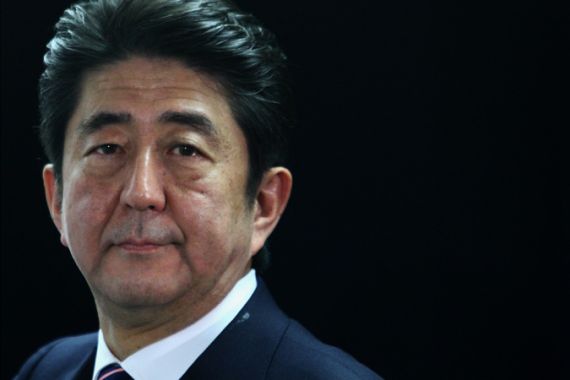Profile: Shinzo Abe
Japanese prime minister says having experienced failure in politics encourages him to “give everything for his country”.

Japan’s Shinzo Abe became prime minister for a second time following the landslide victory of his Liberal Democratic Party (LDP) in the December 2012 general election.
He had made a comeback to Japan’s political stage just three months before, when he was elected as the leader of the LDP.
As a prime minister he has focused on economic reforms and introduced a new policy to kick-start Japan’s economy, dubbed as “Abenomics” or “three arrows”, promising monetary stimulus, fiscal stimulus and structural reforms.
Hailing from a high-profile political family, Abe previously held the position of prime minister in 2006, becoming the youngest person to hold the post since World War II.
He resigned in 2007 citing ill health, after his administration took a hit when numerous scandals involving himself and his ministers were exposed.
In 1993, he won his first seat in parliament and rose to national fame after adopting a tough stance toward neighbouring North Korea in a feud over Japanese citizens kidnapped by Pyongyang.
Ten years later, he became the secretary-general of the LDP – which then held the majority in parliament.
During his short premiership in 2006-07, he pushed for an assertive foreign policy and a greater role for Japan on the world stage as well as calling for a greater sense of national pride.
Political family
Born in Yamaguchi, Abe studied political science from Seikei University in Japan before pursuing a degree in politics at the University of Southern California.
Shintaro Abe, his father, was the foreign minister of Japan from 1982 to 1986. His grandfather, former prime minister Nobusuke Kishi, was a suspected of committing war crimes in World War II, but was never tried.
Kishi unsuccessfully attempted to revise Japan’s 1947 constitution, which was drafted by the United States.
Kishi’s policies, however, seem to have shaped Abe’s agenda, as he advocates for the revision of Japan’s post-World War II pacifist constitution and adopting a more assertive diplomacy while becoming an equal partner with the United States.
His agenda also includes “escaping the post-war regime”, which calls for strengthening Japanese morals and national pride after the US occupation.
He has pledged to right Japan’s listless economy, which has suffered years of deflation, made worse by a soaring currency that has put pressure on exporters.
In a magazine article, Abe stated that he has experienced failure as a politician which motivates him to “give everything for Japan”.
He wrote about his position on national pride being unchanged, and claimed the disputed islands were “inherently Japanese territory” .
Diplomats consider Abe to be a realistic and pragmatic politician, but others say he is also ideologically driven.